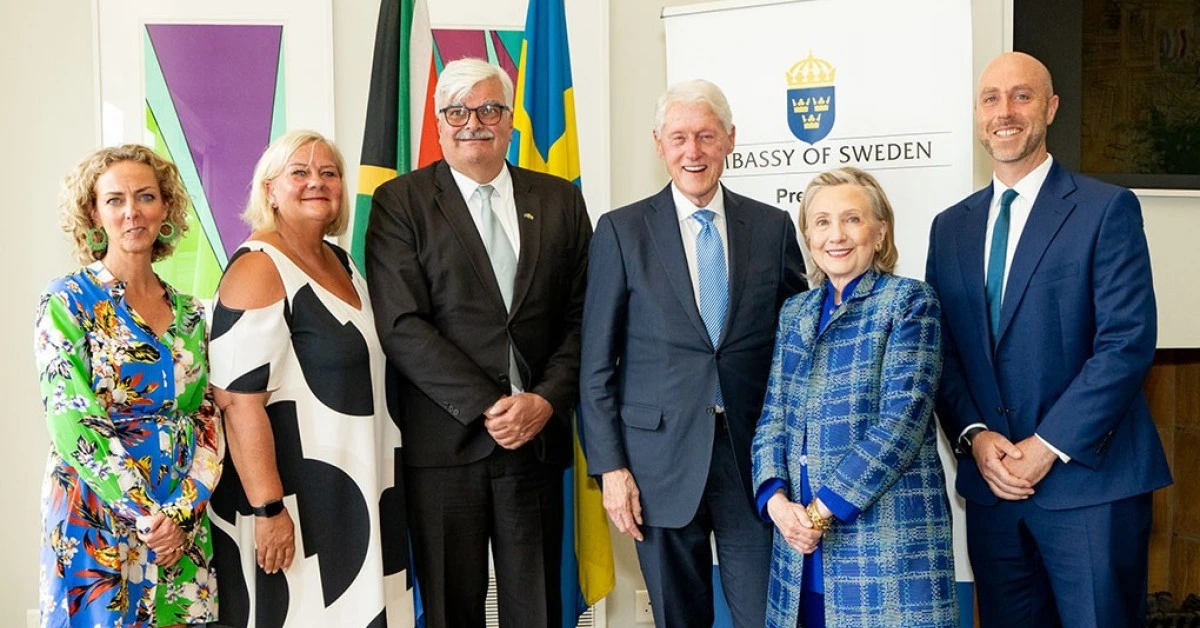
SOUTH AFRICA – A new partnership is set to provide solar power to thousands of healthcare facilities across South Africa, Eswatini, Malawi, and Kenya, improving access to reliable electricity and enhancing medical services.
The initiative, led by the Clinton Health Access Initiative (CHAI) and backed by Sweden, aims to ensure that life-saving equipment functions properly, especially in remote areas.
Many hospitals in these regions struggle with power shortages and rely on costly and unreliable diesel generators.
CHAI CEO Dr. Neil Buddy Shah stressed the importance of electricity in healthcare, saying, “Reliable electricity is essential for any functioning health system. One of the biggest challenges we’ve seen is solar infrastructure falling into disrepair because maintenance costs weren’t properly funded.
This new financing model changes that—it’s designed to ensure sustainable operations over the long term, so doctors and nurses can focus on saving lives rather than worrying about power outages.”
The partnership addresses a major issue: one in four primary health facilities in sub-Saharan Africa lacks electricity, and only half of hospitals have a reliable power supply.
To solve this, CHAI and Sweden have developed a financing model that combines public and private funding to ensure long-term sustainability.
President Bill Clinton, speaking at the launch in Pretoria, highlighted the impact of this initiative: “I’ve seen dedicated doctors and medical professionals working in darkness one too many times. Today, we’re helping to change that story.”
Swedish Ambassador to South Africa Håkan Juholt emphasized that “clean, reliable electricity is a cornerstone of effective health service delivery.”
He noted that energy access is crucial for powering vaccine cold chains, running essential medical equipment, and ensuring safe deliveries for newborns.
A key aspect of this project is its focus on sustainability. Many past solar electrification efforts have failed due to a lack of funding for system maintenance.
This new initiative aims to change that by securing and blending both private and public financing, ensuring long-term functionality.
CHAI will provide technical support to governments to help mobilize funding for ongoing maintenance and expansion.
Sweden and CHAI have collaborated for over a decade to strengthen health systems in Africa, particularly in support of sexual and reproductive health.
This new solar program builds on that partnership and will leverage CHAI’s network of health financing advisors.
Electrification will improve hospital operations by ensuring reliable lighting, powering medical equipment, and maintaining cold storage for vaccines.
It will also create a safer and more effective work environment for healthcare professionals. For example, in some hospitals, doctors have had to perform critical procedures under poor lighting due to power shortages.
Electrification will support critical hospital functions, including lighting, medical equipment operation, and cold storage for vaccines.
A stable power supply will also improve working conditions for healthcare professionals, allowing them to deliver better care.
The project aligns with global efforts to expand clean energy access and reduce carbon emissions.
Solar power is a renewable, low-maintenance energy source, making it an ideal solution for healthcare facilities in developing countries.
Additionally, reducing reliance on diesel generators will lower operational costs for hospitals, freeing up funds for medical supplies and services.
The first phase of implementation will focus on assessing hospital energy needs and installing solar systems in priority locations.
Over time, the project aims to expand to more facilities, benefiting millions of people. Governments in the participating countries have expressed strong support, recognizing the impact of energy access on public health.
XRP HEALTHCARE L.L.C | License Number: 2312867.01 | Dubai | © Copyright 2025 | All Rights Reserved